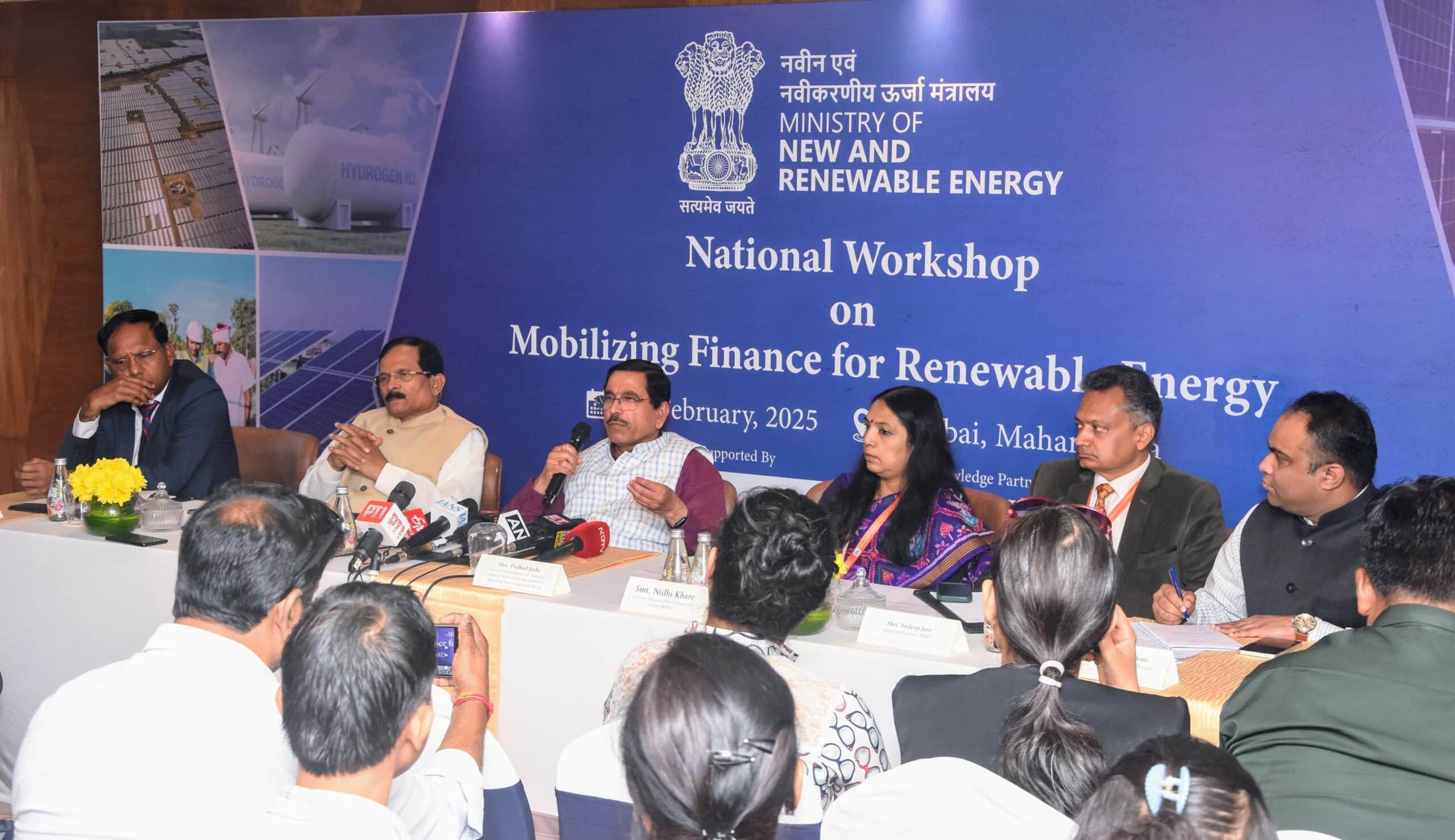Mobilizing Finance for India’s Renewable Energy Future

On February 24, 2025, in Mumbai, Union Minister for New and Renewable Energy, Shri Pralhad Joshi, emphasized the critical need for mobilizing finance to achieve India’s ambitious goal of 500 gigawatts (GW) of renewable energy by 2030. Speaking at the National Workshop on Mobilizing Finance for Renewable Energy, he highlighted the importance of collaboration among financial institutions and policymakers to ensure accessible funding for the renewable energy sector. This workshop is a significant step toward addressing the financial challenges that hinder India’s transition to a sustainable energy future.
The Importance of Renewable Energy Financing
During his address, Minister Joshi stressed that mobilizing finance is essential for meeting India’s growing energy demands. As the country aims to become the third-largest economy in the world, its energy requirements are projected to double. To meet this demand, renewable energy must be scaled up to match the production levels of thermal energy. The Minister pointed out that India has already made substantial progress in renewable energy, with the current capacity reaching 222 GW. However, he noted that achieving the target of 500 GW by 2030 will require significant investments and a shift in financial strategies.
Joshi also highlighted the need for financial institutions to align their lending policies with India’s renewable energy growth strategy. He warned that carbon-intensive industries would face reduced export opportunities in the future, making it imperative for financial institutions to support clean energy initiatives. The Minister mentioned the drastic reduction in solar tariffs, with recent bids in Madhya Pradesh reaching ₹2.15 per unit, a significant drop from ₹11 per unit. This reduction underscores the potential for renewable energy to become a cost-effective solution for India’s energy needs.
Key Highlights from the Workshop
The workshop was organized following a review meeting chaired by Prime Minister Narendra Modi, focusing on accelerating flagship schemes like PM Surya Ghar and PM-KUSUM. Minister Joshi emphasized that these initiatives empower farmers to become energy providers, thereby reducing transmission losses. He urged banks to simplify financing processes, particularly for rooftop solar projects, and proposed the introduction of a Renewable Energy Financing Obligation to ensure dedicated funding for the sector.
In addition, the Minister discussed India’s leadership in green hydrogen and the increasing interest from global investors in India’s clean energy sector. He noted that India has already secured major export orders in green hydrogen, positioning the country ahead of several developed nations. The workshop also featured discussions on innovative financing models and the need for flexible lending terms to support the renewable energy transition.
Collaborative Efforts for a Sustainable Future
Union Minister of State for Power and New & Renewable Energy, Shri Shripad Naik, emphasized that achieving the 500 GW target will require an estimated investment of ₹30 lakh crore. He called on stakeholders to adopt innovative financing models and prioritize green investments. The Secretary of the Ministry of New and Renewable Energy, Smt. Nidhi Khare, highlighted the importance of affordable finance, green bonds, and innovative funding models in driving the renewable energy transition.
The workshop included four key sessions that addressed various financing challenges in the renewable energy sector. Topics ranged from utility-scale renewable energy projects to emerging technologies like offshore wind and green hydrogen. Experts discussed capital allocation strategies and policy interventions needed to reduce financial risks for private sector investments. The discussions reinforced the necessity of collaborative efforts among policymakers, financial institutions, and industry leaders to mobilize large-scale investments.
Observer Voice is the one stop site for National, International news, Sports, Editor’s Choice, Art/culture contents, Quotes and much more. We also cover historical contents. Historical contents includes World History, Indian History, and what happened today. The website also covers Entertainment across the India and World.
Follow Us on Twitter, Instagram, Facebook, & LinkedIn

